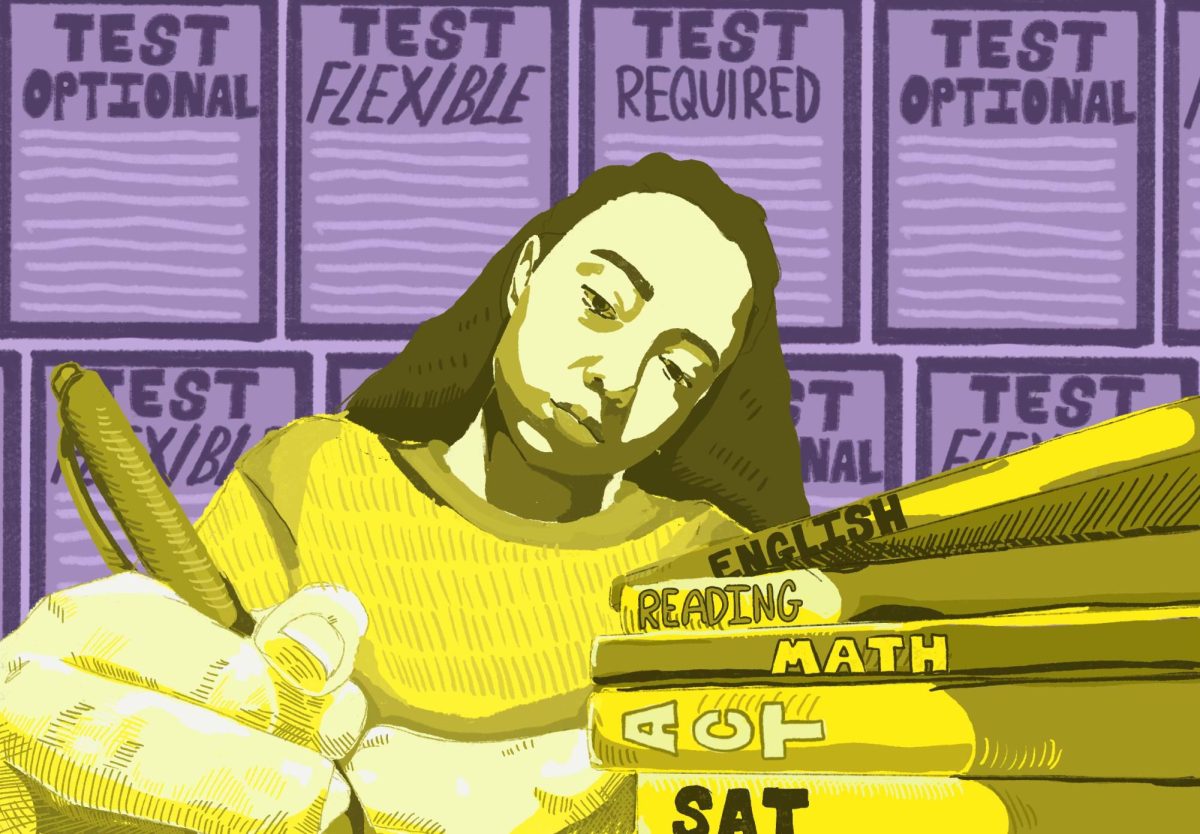In February Yale University announced it would require undergraduate applicants to submit scores from standardized tests, going from test optional as they had been since the pandemic, to “test-flexible.” For many students, this was a desired change, but for others it was shocking.
In the last couple of months, Ivy League colleges Yale and Dartmouth, the University of Texas at Austin, and others have brought back their standardized testing requirements. This leaves students either forced to not apply to these colleges or to rework their mindset about standardized testing.
This group of colleges isn’t the first of the elite, selective colleges to bring back testing requirements. Massachusetts Institute of Technology and Georgetown both reinstated testing requirements in 2022.
Even with these standardized testing changes, they are more nuanced than people may know. Yale’s testing plan is a “test-flexible admissions policy,” meaning applicants can submit scores from the SAT or ACT, or substitute scores from AP or International Baccalaureate tests. All will have the same weight.
David Stroila, a junior who has been taking standardized test preparatory classes, hypothesizes that more colleges will follow these colleges’ decisions.
“I think a lot more schools are going to start becoming test-required,” David said, “because once they see these elite schools being test-required they’re going to want to follow in their footsteps. Like what happened when they went test optional. And I think I’m going to have to start studying more.”
U-High college counselor Patty Kovacs thinks that these decisions won’t cause a larger trend.
“I don’t think there’s going to be a great avalanche of new schools jumping on this,” Ms. Kovacs said. “What’s driving colleges’ decision is their internal research. They still want to find ways to measure what allows students to put their best foot forward. I still really don’t believe that test scores are going to be the deciding factor of an application.”
Conversely, Ms. Kovacs wants students to take this one step at a time regarding changing their minds about testing.
“I really want people to take it all in stride,” she said. “This is not a course of action for hysteria and for Chicken Littles going, ‘The college admissions sky is falling.’ It still is very few schools in the larger scheme of things. It’s just grabbing the headlines because, oh Yale and Dartmouth are going back to testing. Big deal.”
But for students getting ready to start applying to colleges next fall, it can leave them frustrated and worried. Junior Antonio Del Campo said he was already going to take the SAT, but he has some friends who are frustrated because they have to start preparing for standardized tests.
“Now, they’re kinda forced to test, and a few of them aren’t great test takers,” Antonio said, “so it’s a little frustrating because they primarily based their applications around extracurriculars and other parts of their application that don’t include taking the SAT.”
Junior Elizabeth Grace Sharp was planning to take the SAT, a decision she made with her parents. She believes this change is unfair for students who don’t share her mindset.
“I think that they shouldn’t change it because some students have different things that they naturally succeed at,” Elizabeth Grace said, “and I feel like requiring people to participate in testing when some students aren’t good at testing is unfair.”
Hana Javed, a junior planning to take the SAT, believes that if she does well, her SAT score will help her application but that this change is unfair for her classmates, noting that colleges dropped testing requirements during the pandemic.
“I think our year especially still went through a lot of important classes when we were online and we went through a lot of important shifts, like from middle to high school, during COVID,” Hana said, “so being test required puts us all at a disadvantage.”





















































